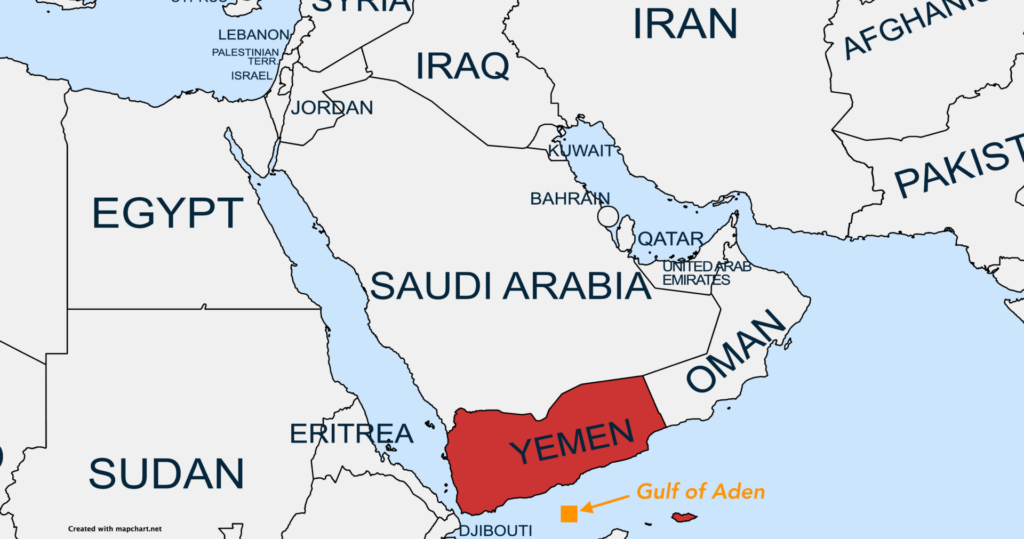Zinger Key Points
- Houthi rebels struck the U.S.-owned Gibraltar Eagle in the Red Sea, causing no injuries or significant damage.
- Tensions escalate in the Red Sea, impacting global trade; Iran's strategies and international security concerns highlighted.
- Today's manic market swings are creating the perfect setup for Matt’s next volatility trade. Get his next trade alert for free, right here.
The Red Sea, a crucial artery for global trade, remains under the shadow of escalating tensions. Recent incidents, including a strike by Iran-backed Houthi rebels Monday on the U.S.-owned Gibraltar Eagle, underscore the growing risks in this vital region.
Houthi Strike On Gibraltar Eagle
On Monday, the U.S. Central Command said an anti-ship ballistic missile was fired by Houthi forces on the U.S.-operated dry bulk ship Gibraltar Eagle. There were no reported injuries or significant damage to the ship.
The vessel, managed by Eagle Bulk Shipping Inc. EGLE, was hit approximately 100 miles off the Gulf of Aden.

Image: MapCharts
This incident followed an earlier failed missile attack by the Houthis that was reportedly detected by U.S. Forces targeting commercial shipping lanes in the Southern Red Sea. The missile crashed on Yemeni land, causing no injuries or damage.
2 Takes On Red Sea Tensions
Avi Melamed, a former Israeli intelligence official and regional analyst, views these events as part of Iran’s broader strategy.
“The Houthis are an integral, if not the most integral, component of the Iranian tactic to use its proxies to manipulate the U.S. to pressure Israel to halt its progress in Gaza,” Melamed said in a note sent to Benzinga.
These incidents challenge not only Iranian hegemony in the region but also the longstanding strategies and tactics of the regime, he said.
British Prime Minister Rishi Sunak said the actions of the Houthis have no connection to the Israeli-Gaza conflict. He emphasized the broader implications of inaction, stating that not responding weakens international security and the rule of law and could further harm freedom of navigation and the global economy.
Market Reactions: Oil Steady, Shipping Shares Rise Further
Crude oil experienced a modest downturn on Monday, with WTI falling 0.4% to $72.50.
Conversely, shares of major European maritime shipping companies like A.P. Moller-Maersk and Hapag-Lloyd AG saw increases of 0.9% and 3%, respectively.
The uptick in shipping stocks indicates investors are anticipating potential price hikes due to increased risks in the navigation.
The Sonic Shares Global Shipping ETF BOAT, which dipped 2.5% last Friday, is not trading on Monday due to the U.S. market closure. The maritime shipping gauge has rallied by16% over the last month.
Photo via Shutterstock.
Edge Rankings
Price Trend
© 2025 Benzinga.com. Benzinga does not provide investment advice. All rights reserved.
Trade confidently with insights and alerts from analyst ratings, free reports and breaking news that affects the stocks you care about.